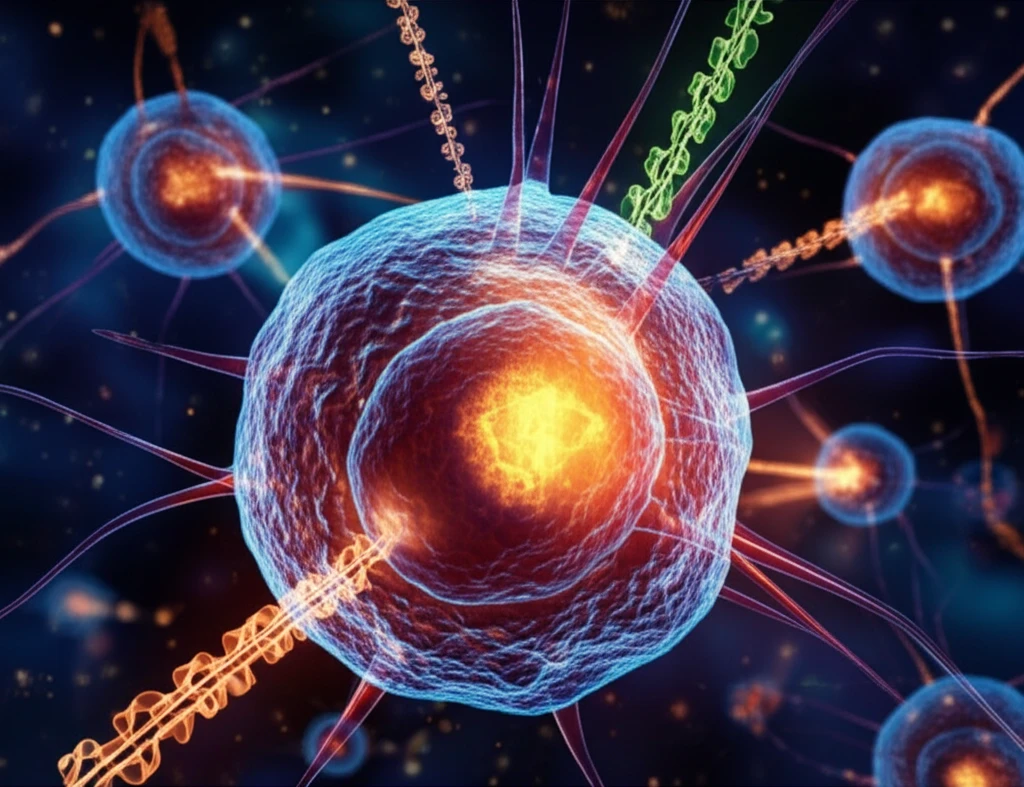
Decoding the Body's Response to Cancer: How a Tiny Protein Could Revolutionize Treatment
"Groundbreaking Research Unveils the Critical Role of NPM1 in Battling Cancer and Opens Doors to Novel Therapies"
In the relentless fight against cancer, researchers are constantly seeking new ways to outsmart this formidable disease. Recent breakthroughs have illuminated a previously underappreciated player in the cancer battleground: a protein called NPM1. This protein, short for nucleophosmin 1, is emerging as a key figure in how our bodies respond to cancer treatments, particularly radiation therapy.
Understanding the intricate mechanisms of cancer cells is crucial to developing effective therapies. When it comes to radiation therapy, one of the most common cancer treatments, researchers have been striving to understand why some cancer cells are resistant to it. The goal is to find ways to make these cells more vulnerable.
This article delves into the groundbreaking research that unveils NPM1's role in cancer cell behavior. We'll explore how this protein, once thought to have a simple function, is actually a multitasking maestro, orchestrating the cellular response to radiation. This opens up exciting possibilities for developing more effective and targeted cancer treatments.
Unveiling NPM1: The Protein with a Surprising Role in Cancer

NPM1, a protein found within our cells, has long been recognized for its role in cell growth and development. The latest research highlights its previously unknown role in the fight against cancer. Scientists have discovered that NPM1 is a dynamic player, responding to radiation in ways that significantly impact tumor cell survival. Think of NPM1 as a cellular sentinel, constantly monitoring the environment and reacting to threats like radiation.
- Dephosphorylation: NPM1 undergoes a rapid change after radiation, with key chemical groups being removed.
- Cellular Location Matters: The protein's location within the cell shifts after radiation exposure.
- Survival Implications: These changes in NPM1 are linked to whether cancer cells survive or succumb to treatment.
A New Era in Cancer Treatment
The discovery of NPM1's role in the radiation response of cancer cells marks a significant step forward in cancer research. By understanding the intricate mechanisms of this protein, scientists are paving the way for new and improved cancer therapies. This research offers hope for patients, promising more effective and targeted treatments that can make a real difference in the fight against cancer.
